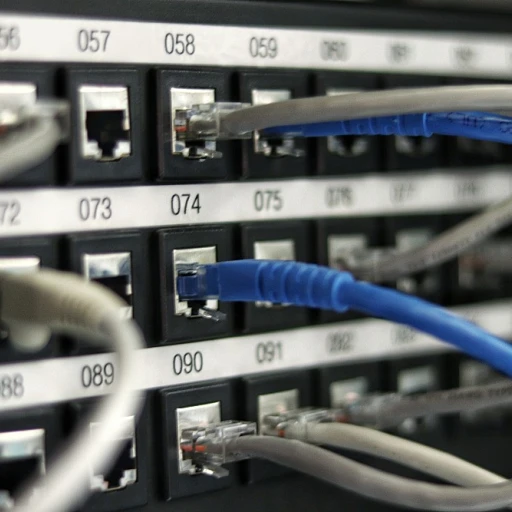
The Rise of AI in Software Development
Emergence of AI in the Software Landscape
The digital era continues to evolve at an astonishing pace, and at the forefront of this transformation lies artificial intelligence. Every sector is feeling its effects, especially within software development. AI has made significant inroads into the way software is both conceptualized and constructed. From automating mundane tasks to offering sophisticated analytics and insights, AI’s influence is reshaping the software development process.
The role of AI in software development is not just an enhancement—it's a game-changer. By automating repetitive and time-consuming tasks, AI allows developers to focus on more innovative and creative aspects of their projects. This synergy between AI and human aptitude is paving the way for faster, more efficient development cycles and higher-quality software products.
Moreover, AI-driven tools are being integrated into software workflows to enrich coding practices, which we will explore in more detail later. These tools can identify bugs, suggest optimizations, and even generate code, contributing to an evolving landscape where the distinction between human and machine input grows increasingly blurred.
However, with great power comes the perennial question—will AI one day replace human developers altogether? This notion raises debates across the industry, a topic that warrants deeper analysis, particularly as we forecast AI's long-term impact within this realm.
To truly harness AI’s potential, companies are looking toward automation agencies that can revolutionize business processes, further enriching what AI can do, both in software development and beyond. For more on how automation can transform your strategies, see how an automation agency can revolutionize your business.
Will AI Replace Human Developers?
The Evolution of Developer-AI Collaboration
The advancements in artificial intelligence have sparked ongoing debates about the potential of AI to replace human developers. While AI undoubtedly plays a pivotal role in software development, envisioning a future where it entirely replaces human developers may be somewhat premature. Instead, the trend is leaning towards a collaborative effort where AI acts as a powerful ally to human creativity and problem-solving skills. AI has found a niche in coding by handling repetitive, time-consuming tasks, empowering developers to focus on innovation and strategic thinking. The synergy between human intuition and AI's processing capabilities creates a partnership that harnesses the best of both worlds. This collaboration can lead to enhanced efficiency in writing clean, error-free code, optimizing performance, and even suggesting improvements. Nevertheless, there is a level of creativity and nuanced understanding that human developers bring to the table, which machines currently cannot match. The ability to understand user needs, empathize with end-users, and make judgment calls rooted in experience is inherently human. A machine-driven approach might miss out on these subtleties, which can be critical to successful software development. In this ever-evolving landscape, the question isn't whether AI will replace human developers but rather how the industry can foster seamless cooperation. This collaboration encourages a transformation in the developer's role, wherein they may become more like orchestrators who direct AI in specific, creative, and precise ways. Through enriching this collaboration, AI doesn't replace the intricate human touch but supplements and augments the skills of developers, leading to innovations never before imagined.AI Tools Revolutionizing Coding
Coding Transformed by AI: A New Era of Software Development
Artificial intelligence is set to usher us into a new era that is transforming the craft of coding itself. As highlighted in earlier discussions, AI's rapid rise in software development is undeniable. Whether it's in automating mundane tasks or elevating complex programming processes, AI tools are becoming invaluable in the coding landscape. For developers, embracing these tools means navigating a landscape abundant with smart solutions that simplify their workflows. AI-powered code generators and intelligent assistants significantly enhance efficiency, enabling developers to focus on more high-level conceptual work. These tools not only expedite development time but also reduce errors, ensuring that projects are delivered faster and with greater accuracy. Moreover, AI is driving innovation in how developers approach problem-solving, as outlined in another part of this series. By leveraging these advanced solutions, developers dive into more creative endeavors, bringing novel ideas to fruition with fewer hurdles. For instance, AI can analyze vast codebases to suggest improvements, identify potential issues, and even offer solutions before problems occur, a feat unimaginable without machine intelligence. As the software industry leans into this AI-powered transformation, it also opens the door to exciting collaborative possibilities with traditional development methodologies. With AI taking on the drudgery of repetitive coding tasks, developers can invest more effort into experimenting with new technologies, driving progress across fields like data science and engineering. For those keen on diving deeper into specialized technical fields, understanding the full scope of AI-driven tools available is essential. For instance, the rise of headless CMS technologies like Sanity is revolutionizing the way content is managed alongside modern software development practices. Integrating such advancements bolsters the potential of AI within the coding realm. In conclusion, the software development world stands at the precipice of unparalleled evolution. By embracing AI tools and technologies, we are not just improving how software is written, but we are reshaping the role of developers in a future dominated by intelligent applications.AI and the Future of Problem Solving
AI: The Catalyst for Innovative Problem Solving
Artificial intelligence stands as a game-changer in how software approaches problem-solving, weaving intricate layers of innovation and efficiency. As highlighted earlier, AI's rise in software development has seen it seamlessly integrating into tasks that once exclusively required human intellect. This transformation comes with distinct advantages and distinct challenges. Traditionally, software development relied heavily on pre-defined algorithms to tackle issues. With AI now in the fray, software can adapt and learn from data, making it possible to solve complex problems with minimal human intervention. This capability offers a dynamic approach to problem-solving, where software is not just a tool to execute instructions but an active participant in generating solutions. AI-powered problem-solving is manifesting in several groundbreaking applications. Consider the world of predictive maintenance. By leveraging large datasets, AI algorithms can anticipate failures in machinery or software systems before they occur, reducing downtime and optimizing performance. Similarly, in personalized user experiences, AI can adapt applications based on user behavior, delivering tailored content and interactions that align with individual needs. Yet, the journey towards AI-driven problem-solving is not without its obstacles. Issues such as data privacy, ethical implications, and the need for vast amounts of quality data present formidable hurdles. These challenges necessitate evolving ethical standards and innovative data management strategies to ensure responsible AI usage. As AI continues to carve its path within software, it's vital for developers to embark on a continuous learning journey, as emphasized in our discussion on skills and learning preparedness. Staying updated with the latest AI methodologies and understanding their ramifications is crucial for developers aiming to harness AI's full potential. By embracing AI, future software solutions are set to redefine problem-solving paradigms, making way for unprecedented possibilities and efficiencies.AI's Impact on Data Science and Engineering
Unleashing AI's Potential in Data Science
The impact of artificial intelligence on data science and engineering is nothing short of transformative. As AI continues to advance, it enables professionals to dive deeper into data analysis, drawing insights that were once buried under layers of complexity and volume. Machine learning algorithms, a branch of AI, allow for the identification of patterns and trends, providing businesses with a competitive edge in decision-making.
AI-driven tools are increasingly being woven into the fabric of data engineering. With the continuous rise of big data, conventional methods of data processing and management are being stretched to their limits. AI offers innovative solutions by automating data cleaning, integration, and even suggesting optimal models for data analysis. Engineers can now focus more on strategic thinking and less on mundane tasks.
Furthermore, AI is democratizing data science for those who may not have had formal training in the field. Platforms equipped with AI capabilities can assist in creating models and visualizations, thereby allowing a broader range of professionals to harness the power of data. This not only helps in problem-solving but also in developing a data-driven culture within organizations, as discussed in our previous exploration of AI's role in the future of problem-solving.
Ultimately, as AI continues to embed itself into data science, the challenges faced in processing and analyzing vast amounts of information are turning into opportunities. Embracing these AI-enhanced tools and methodologies is crucial for anyone looking to stay ahead in the rapidly evolving tech landscape.















